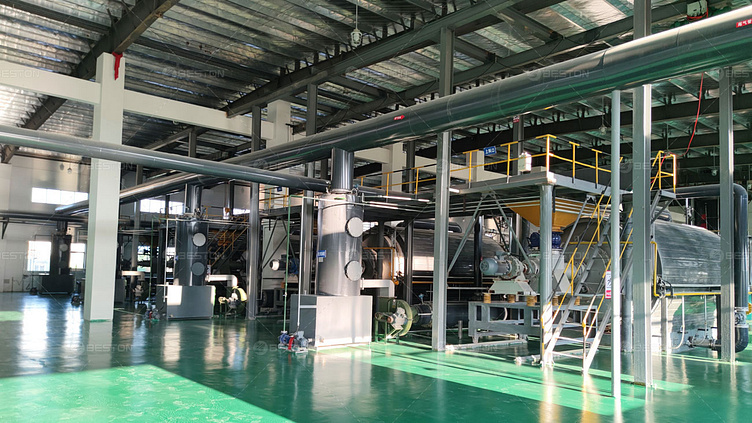Use Thermal Desorption Unit to Process Oil Sludge
Thermal desorption is an advanced and environmentally friendly technology used to process oil sludge, a mixture of oil, water, and solid materials generated during various stages of oil and gas production, refining, and transportation. This innovative technique (https://bestonmachinery.com/thermal-desorption-unit/) focuses on the application of heat to separate and recover valuable hydrocarbons from the sludge, while simultaneously minimizing the environmental impact associated with traditional disposal methods.
The thermal desorption process typically involves the following key steps:
Heating Chamber: The oil sludge is introduced into a specially designed heating chamber where controlled temperatures are applied. This chamber is equipped with advanced heating elements or a direct flame system to elevate the temperature within the chamber to a level sufficient for efficient desorption.
Vaporization of Volatile Components: As the temperature increases, volatile components such as water and lighter hydrocarbons present in the oil sludge start to vaporize. This step ensures the separation of these components from the solid matrix of the sludge.
Desorption of Hydrocarbons: The elevated temperature facilitates the desorption of hydrocarbons from the solid particles in the sludge. This process effectively extracts valuable crude oil and other hydrocarbons, leaving behind a reduced-volume solid residue.
Condensation and Recovery: The vapors produced during the desorption process are condensed back into liquid form. This condensate contains the recovered hydrocarbons, which can be further processed and refined for reuse or sale.
Treatment of Residual Solids: The remaining solid residue, after the desorption process, is typically drier and contains fewer hydrocarbons. It may undergo additional treatment steps to meet environmental regulations or be disposed of in an environmentally responsible manner.
The advantages of thermal desorption for oil sludge processing include:
Resource Recovery: Significant amounts of valuable hydrocarbons are recovered from the sludge, contributing to resource conservation and economic benefits.
Environmental Sustainability: Thermal desorption minimizes the environmental impact of oil sludge by reducing the volume of waste and preventing the release of harmful substances into the environment.
Compliance with Regulations: The processed sludge and recovered hydrocarbons can often meet regulatory standards, ensuring compliance with environmental guidelines.
Energy Efficiency: Modern thermal desorption technologies are designed to optimize energy efficiency, making the process more sustainable.
While thermal desorption is a promising method for handling oil sludge, it's essential to consider site-specific factors, the composition of the sludge, and regulatory requirements to tailor the process for optimal results.

